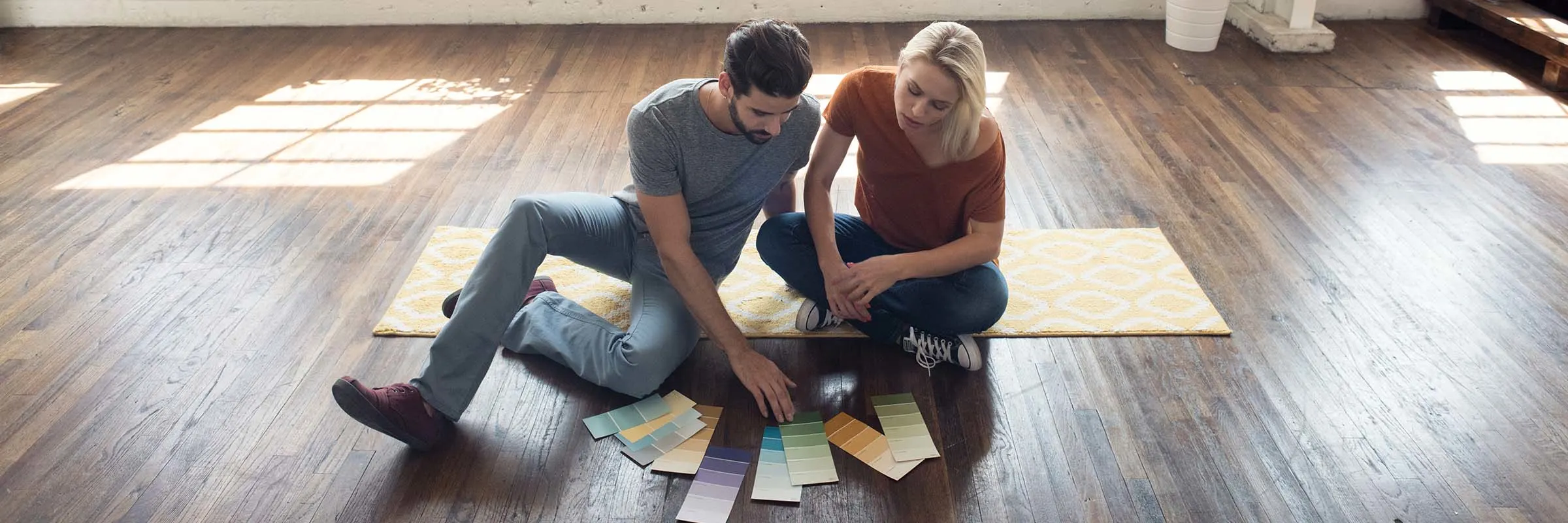What we'll cover
How life insurance affects homebuyers
How to determine your policy size
Basics of mortgage protection insurance
Becoming a homeowner is a big step that comes with many new costs and financial responsibilities. While this change may feel overwhelming, it's a great time to think about another important purchase — life insurance. Life insurance can be a way to help protect your new assets as you build your wealth through homeownership.
Is having life insurance when purchasing a home a good idea?
As you'll quickly learn, being a homeowner comes with a lot of costs. Beyond your mortgage, you'll be paying for homeowner's insurance, property taxes, maintenance and utilities. Life insurance may help to ensure that, in the event of your death, your loved ones will still be able to cover these expenses.
Read more: Which mortgage is right for you?
Even if you already had life insurance prior to buying a home, it might be wise to reevaluate your needs and make necessary adjustments when you take on the financial commitment of homeownership.
Life insurance can be a way to help protect your new assets as you build your wealth through homeownership.
How much life insurance should I get when buying a home?
The size of the life insurance policy you should purchase depends on a number of factors, including your life stage, financial goals and budget. Think about the full picture of your family's money needs should you pass away. You likely want to ensure that they will not lose the home or be forced to sell.
What is mortgage protection?
Mortgage protection insurance (MPI) is a different type of policy separate from life insurance. An MPI policy typically pays off the rest of your mortgage if you die. MPI works similarly to life insurance in that you pay the insurer a premium on a monthly basis in exchange for a payout if a claim is made. The dollar amount or number of payments that the policy will cover can vary.
One way that mortgage protection insurance differs from life insurance is that the beneficiary in the case of MPI is your lender, whereas the beneficiary of your life insurance is a beneficiary that you choose, such as your family (your spouse, children). While some life insurance policies can require a medical exam and reject applicants based on health conditions, MPI is usually available to all homeowners. Note that MPI is not required when buying a home or applying for a mortgage, so it is up to you to decide if this type of policy would work for your financial situation.
Do I need mortgage protection and life insurance?
You may not need both. With life insurance, when the insured person dies and a claim is made, their beneficiaries receive payment and have the freedom to spend the money as they choose. If they have more pressing expenses after you die, they can spend the money on those rather than the mortgage.
If you can't qualify for life insurance, MPI may help to ensure your family can keep your home after you die. MPI can also serve as a supplement to life insurance. If your beneficiaries pay off your mortgage with MPI, that leaves them with the entire payout from life insurance to use as they wish.
Secure your happy home
Becoming a homeowner is an exciting milestone. You're putting down roots and making your house a home. Consider getting life insurance at this critical juncture to help protect your family's future.
Ladder Insurance Services, LLC (CA license # OK22568; AR license # 3000140372) offers term life insurance products issued by multiple insurers. For details go to ladderlife.com. All insurance product terms are set and governed by the individual insurance policy. Each insurer has financial responsibility for its own products.



